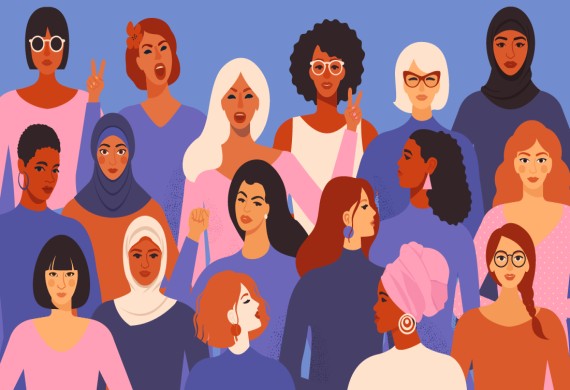
New I-T guidelines emphasise women's and children's safety
By: WE Staff | Wednesday, 17 November 2021
The Information Technology (IT) Rules 2021, according to the Union government, have a strong focus on strengthening the safety of women and children.
The Centre stated in an affidavit submitted before a bench of chief judge DN Patel and justice Jyoti Singh that the new laws are intended to eradicate "revenge porn" and other posts that violate bodily privacy. Different high courts have temporarily halted the implementation of these restrictions when they were challenged on the basis of overreach and a threat to fundamental rights.
“That the rule protects the dignity of the person whose pictures on the computer resource negatively impact his/her dignity. The content removal within a 24 hours timeline does not result in over censorship and it has to be seen in the light of the sensitivity, which is of utmost priority. Rule 3(2)(b) has been issued for the benefit and protection of victims whose sensitive pictures have been leaked online. It is a beneficial rule. Removal of a partially nude picture from its computer resource, on the basis of a complaint received from the victim of such picture, can in no way be said to affect the right of freedom of speech and expression of a user,” the Centre said in the document.
The Union government further stated that the IT Rules require intermediaries providing messaging services to work with law enforcement authorities (LEA) to identify the first source of information connected to rape and child sexual abuse content (CSAM).
“The significant social media intermediaries shall endeavour to deploy technology-based measures to identify any act or simulation of rape and children engaged in any sexually explicit act, in accordance with the safeguards in the Rules,” the government said.
As a user of social media platforms such as WhatsApp, Instagram, Twitter, Telegram, and others, petitioner Uday Bedi, a practicing lawyer, challenged the impugning Rules 3 and 4 of the Information Technology (Intermediary Guidelines and Digital Media Ethics Code) Rules, 2021, which went into effect on February 25, 2021.
In response to the petition, the Centre stated that the government is committed to the Constitution of India's guarantees of freedom of speech and expression, as well as the privacy of its inhabitants. It added that the guidelines are intended to help ordinary users of intermediary platforms by providing a system of checks and balances for the removal of illegal content or information from social media platforms.






